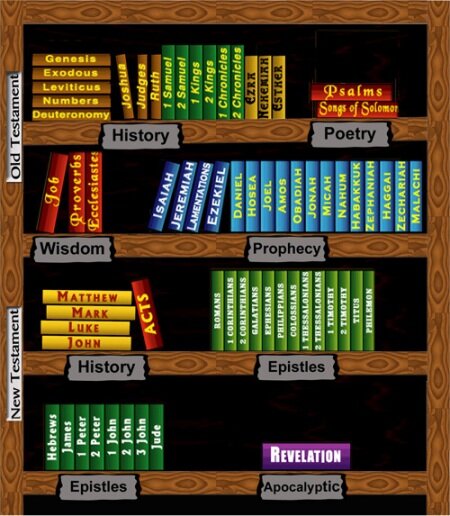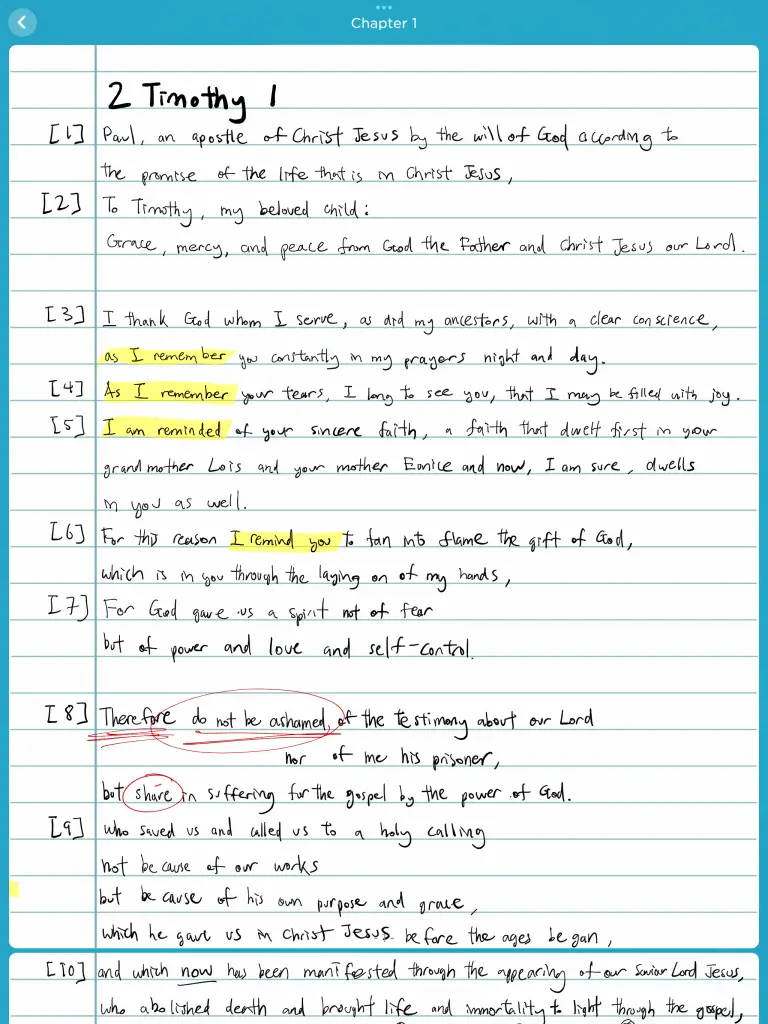50+ Ideas On How To Study The Bible Effectively For Beginners
Are you a beginner looking for Bible Study Ideas to help improve your knowledge of Scripture? Have you struggled to find meaningful ways to engage with God’s word?
Imagine feeling confident and equipped in your Bible study. You can delve deeper into the meaning and significance of each book, chapter, passage, and verse.
If you’re ready to take your Bible study to the next level and start sharpening your skills, this guide is filled with helpful tips.
What Are the Best Bible Study Ideas?
You do not need to feel stuck and confused when it comes to honing your Bible study skills. Below are many practical and effective ways to study scripture, to help you grow in a deeper understanding of God’s word.
Disclaimer: I may receive compensation for some of the affiliate links below at no cost to you if you decide to use my links. You can read our affiliate disclosure in our privacy policy.1. Use A Literal Translation Of The Bible
Sometimes, it is challenging to find the best Bible translation. However, it is important to study the entire Bible along with a translation that sticks closely to the original language of the Bible. This idea leans more towards a word-for-word translation because it is the most accurate way to understand the Scripture.
Some examples are English Standard Version (ESV), New American Standard Bible (NASB), and New King James Version (NKJV).
2. Read The Bible Slowly
Reading the Bible at a slow pace can help increase comprehension as you digest the words. You may miss some important details if you read the Bible too fast.
3. Read The Bible Out Loud
Most people read silently.
But reading the Bible audibly has benefits. It helps you to slow down and eliminates distractions. You use the hearing and seeing senses.
As a result, it should increase your understanding, retention and memory.
4. Use A Study Bible
Study Bibles contain short and helpful commentary at the bottom of the pages. They should contain an introduction and key themes of each book, maps, cross-references, concordances, articles, and many more.
Some examples are the ESV Study Bible, CSB Study Bible, and MacArthur Study Bible.
5. Spend Time Praying
Christians should begin Bible study with prayer. Praying to God humbles believers because they are dependent upon Him to illuminate His word.
Psalm 119:34 KJV: “Give me understanding, and I shall keep thy law; yea, I shall observe it with my whole heart.”
6. Use A Bible Software
There are different options for Bible software in the market: Logos Bible Software, Accordance Bible Software, Olive Tree Bible Software, E-Sword, and Stepbible.
Bible Software is a digital library that allows you to access a myriad collection of Bible commentaries, translations, dictionaries and other biblical resources.
For example, it has helped many Christians become more efficient and optimized in their own Bible study process, finding helpful information they need to understand the Bible and improve their study skills.
As a user of the Logos Bible Software, you can get started with an exclusive offer for Logos 10 (15% off on your library).
7. Memorize The Bible
Don’t just study the Bible. Memorize it.
The benefit of Bible memorization helps you to remember God’s word, discern God’s will and combat temptation on a daily basis.
Choose a verse or a passage to memorize. Start with the Psalms.
Psalm 119:11: “Thy word have I hid in mine heart, that I might not sin against thee.”
8. Pay Attention To Repeated Words or Phrases
The Bible is filled with repetitions. For example, John repeats the idea of light and darkness in his gospel and letters.
Why do biblical authors use this particular word more than once? What is their intention and message?
9. Learn To Use Cross-References
Cross-references help you connect a verse to other passages of the Bible. If there is a verse that is unclear, another verse can interpret the unclear verse.
Some study Bibles that may have cross-references. An invaluable (and FREE) and a great resource is The Treasury of Scripture Knowledge.
10. Consider The Author’s Intent And Purpose
“We ought to understand the ideas the (dual) author intended through the normal rules of language and facts of history.” (The Hermeneutics of the Biblical Writers by Abner Chou)
The question is not “what does this passage in the text mean to me”, but “what did the author mean and why does he want his original audience to know this?”
11. Know The Grammatical Context
Languages have grammatical rules that govern the way words and phrases are used in a sentence and paragraph. Those rules apply in the biblical text.
For example, questions you could ask about the text:
Who are the main subject part and object? Is it singular or plural? Where are the conjunctions and how are they used?
12. Ask Your Pastor Bible Questions
Your pastor should be able to address your own questions that you have from the Bible. He should be able to teach you to understand the text better.
The additional benefit is that you can build a good relationship with your pastor. Your pastor may feel appreciated that you approached him with the question.
13. Complete A Study Guide On A Specific Book Of the Bible
A study guide generally provides a structure and flow for your study. It gives you a lot of questions for you to answer as you study and interpret the text.
It also provides you with an introduction to the book: authorship, historical narrative background, theological themes, interpretive challenges, and many more.
Check out this sample of a study guide on the letter to the Romans.
14. Compare Multiple Bible Translations
There are many Bible translations in the English language. It is beneficial to compare and contrast your personal Bible to other translations. It helps you to unlock different possible ways to understand the text.
Here’s an example of comparing a text like Ephesians 2:3:
15. Know Your Hermeneutics
Hermeneutics is the study of the principles and methods of interpreting the text of the Bible. The purpose is to interpret the Bible with precision and accuracy.
It is not merely an academic exercise. How you interpret and study scripture and the Bible affects Christian living and ministry.
16. Use A Concordance
A concordance is an index of biblical words that assists in helping a person find specific verses connected to the word.
For example, you can look up “sparrows” in a concordance, and it may list Matthew 10:29, Matthew 10:31, and Luke 12:6-7.
Two helpful resources: Strong’s Exhaustive Bible Concordance and The Strongest NASB Exhaustive Concordance.
17. Dig Deeper Into The Cultural Context
Our contemporary culture is far distant from the culture of the Bible. It is easy to take some concepts of the Bible for granted by viewing them from our cultural lens. Instead, we need to be immersed in the ancient near eastern culture to unlock a deeper meaning of God’s word.
For example, what were engagements and weddings like in Jesus’ days? How they did communicate? (They obviously did not have the internet.)
18. Read The Whole Bible In Chronological Order
Reading the Bible in chronological order can help you connect different events together.
For example, some of the Psalms can be read at the same time as 1 and 2 Samuel. It gives you insight to David’s emotions when he was in trouble.
Try to find a reading plan for it!
19. Get An Overview Of Each Book Of The Bible
Before you read a book of the Bible, read an overview or watch a video from the Bible Project. It helps outline the trajectory of the book from the beginning until the end. It ties the overall message together.
20. Read Through A Book Repeatedly For A Month
This tip can provide both familiarity and intimacy with the book. Reading it many times can assist in remembering the text, themes and structure of the content. It may allow you to notice ideas that you did not notice beforehand.
Disclaimer: I may receive compensation for some of the affiliate links below at no cost to you if you decide to use my links. You can read our affiliate disclosure in our privacy policy.21. Use A Journal
Record your thoughts and insights in your journal if you enjoy writing notes. It is a great way for you to revisit your study time and study notes in the past. You can see how you have grown in your own study time of the Bible and your spiritual growth journey in your personal relationship with God.
22. Take Notes During The Sermon
A lot of time, some may find it hard to focus on the sermon due to distractions. The best way to counter that is by taking notes. Taking notes can allow you to actively engage with the preaching of God’s word.
23. Learn Original Greek
The New Testament was originally written in Koine Greek. Learning a little bit of the original language can unlock the nuances of the Bible that you do not see in the English translation.
24. Learn Hebrew
The Old Testament was originally written in Hebrew (with a tiny bit of Aramaic). Learning this language can help you better understand its original form and literary devices.
25. Use A Bible Dictionary For Unfamiliar Words
The Bible contains many unfamiliar words because we don’t use them in our normal conversations.
For example, what is a Gentile?
Some words may be familiar, but the dictionary covers the meaning of the words in their cultural and other historical and cultural context and background.
26. Do A Word Study
A free feature that Logos Bible Software has is a word study. For example, it shows you how many times a word is used in the Bible and sometimes gives you the lemma (the basic dictionary form of the word).
Blue Letter Bible also offers a free word study on its website.
Are you ready to invest in Logos Bible Software? Get started with an exclusive offer for Logos 10 (15% off on your library) with my link below:
[et_pb_button button_text=”Try Logos ” builderversion=”4.19.4″ modulepreset=”default” hover_enabled=”0″ sticky_enabled=”0″ custom_button=”on” button_text_color=”#FFFFFF” button_bg_color=”#E09900″ button_bg_enable_color=”on” button_url=”
“>https://www.logos.com/partner-offer?ClickID=01_125406919_de472694-88e6-4562-a5a6-898a6bf76e27”]
27. Use A Bible Atlas
Having a map of the Bible will give you a visualization of the geographical locations and events in the Bible.
For example, in the book of Acts, you are able to trace the events of the Apostles on a map.
Using the map while reading the Old Testament can be a reference to specific places that are unfamiliar to modern readers of the Bible.
28. Join A Bible Study Group At Church
Spending time with a group of people in Bible studies or small groups can challenge you to articulate your understanding of the Bible.
At the same time, you are also being edified by the Bible study leader and other Christians in their understanding of Scripture.
29. Utilize Free Bible Study Tools On The Internet
Fifty years ago, many Bible study tools were not accessible. With the rise of technology and the internet, God has blessed Christians with free online resources. Be a good steward of technology.
Here are some of the websites you can utilize:
Blue Letter Bible
This tool features resources such as concordances, dictionaries, some commentaries, and different Bible translations.
Bible Study Tools
It is considered the largest free online Bible website for verse search and in-depth studies.
Enduring Word Commentary
It is the ministry of David Guzik where you provides exposition and commentary of the Bible.
Bible Gateway
This is perhaps the most visited Christian website where you can read, hear, and study the Bible online.
Bible.org
A website that answers questions and provides sermon manuscripts from pastors and theologians.
Treasury of Scripture Knowledge
The most comprehensive resource for cross-referencing the Bible.
30. Take Advantage Of Got Questions
This is probably the best website that all Christians should use, especially new Christians.
The name of the website is exactly what it is. Did you have questions about the Bible, theology, apologetics, and cultural issues? This website will answer them for you.
31. Get A Bible Commentary
Bible commentaries offer more in-depth insights and comments to the Bible than a study Bible. They can range from technical to expositional to devotional reading. The best Bible commentaries can depend on the set and the scholar.
32. Find Connections Between The Old And New Testament
While the Bible contains the Old Testament and New Testament, it is one unified book.
The Old Testament points forward to Jesus as the fulfillment of the prophecies. The New Testament points back and explains the gospel and its implication for the Christian life.
Furthermore, the New Testament quotes and alludes to the Old Testament. This is particularly true in the letter to the Hebrews. So, it would be important to study and understand how the New Testament authors used the Old Testament.
33. Use Inductive Bible Study Method
Inductive Bible Study provides three simple steps for studying the Bible: observation, interpretation, and application.
Observation requires the reader to observe what is in the text.
Interpretation prompts the reader to discern the meaning of the text.
Application encourages the reader to apply the text into their Christian life.
34. Do A Character Study
Studying the characters of the Bible helps us to see their failures and successes in their faithfulness to the Lord. All characters have their strengths and weaknesses. We can learn how they behave when they’re put through specific situations that may test their faith.
For example, you can learn about the characteristics of Ruth that you may never have known about. Or you can learn about Nicodemus, who is only mentioned in the Gospel of John.
35. Practice Sentence Diagramming
Jack Hughes tweets about sentence diagramming of the Bible. Breaking down a sentence and paragraph can help you to notice the connection in the grammar and structure of the biblical passage.
Here is my example of sentence diagramming when I studied Romans 15:13:

36. Listen To Bible Study Podcasts
Redeeming your commute time by listening to a Bible study podcast can be beneficial to learning the Bible. While you may not always capture all the details of the podcast, you are at least absorbing information (perhaps through osmosis).
For example, Dr. Steve Lawson has his own Bible study podcast that you can find on Spotify.
37. Listen To Sermons
Similar to learning a Bible study podcast, you can listen to sermons of your favourite preachers. It can help you engage and improve your Bible study skills as you gain a different perspective and insights to the Bible passage and to a particular theology.
38. Listen To Audio Bible
Try being an audible learner by listening to an audio Bible. Listen to it while you’re commuting or doing chores. But try your best not to replace the reading of the Bible.
You can listen to the audio Bible and read the Bible at the same time. If some names are hard to pronounce, audio Bible can help you learn the pronunciation.
Bible resources such as YouVersion have audio and many Bibles too.
You can try Audible for FREE for 30 days when you sign up for a trial today. They have audio Bibles with different versions, such as the NIV, KJV, NKJV, and ESV.

39. Study The Bible With An Accountability Partner
An accountability partner is a person who can hold you accountable in accomplishing your tasks and goals. Studying the Bible with an accountability partner can improve your Bible study skills in many ways.
Your accountability partner can motivate you to be consistent. You can share insights and perspectives with this individual. That person can discuss with you and ask provoking questions about the text.
The challenge is finding a partner who is willing to make the same time commitment too.
40. Find A Relevant Topic
Did a significant event happen in your life? Are you struggling with something in your life? Is there a world altering event? Perhaps those would be considered relevant topics to think through.
The Bible is sufficient in answering all of life’s questions.
For example, the pandemic that happened in 2020 is a relevant topic. What does the Bible say about viruses or plagues? How should Christians respond to it?
41. Understand The Literary Genre
The God who inspired the Scriptures divided His word into different types of literary forms (also known as genres).
In general, there are (at least) 7 different forms: Narrative (or history), law, wisdom, poetry, prophecy, gospels, and letters.
Different literary genres would require different rules of Bible interpretation. For example, you may read and interpret poetic literature differently from narratives. Usually, poetic literature would use metaphors, personification, parallelism, and similes where narratives should be read literally as events unfold.

42. Pay Attention To Patterns
There are repeated themes and ideas in the Bible; thus, creating a pattern. Patterns can allow us to see the stories and events at a deeper level by connecting the dots to the rest of Scripture.
For example, God’s presence with the lives of His people is a big theme in Scripture. God dwelt with His people in the Garden of Eden. But sin separated humanity from a saving relationship with God. God is on a mission to dwell with the lives of His people again. Eventually, He dwelt with them in different ways: the tabernacle, the temple, in the person of Jesus, and in Christians (as the temple of the Holy Spirit). Finally, He will dwell with them in the New Heaven and New Earth.
Paying attention to patterns can improve your Bible study skills because it allows you to identify key themes and messages within Scripture.
43. Learn Typology
Typology is the art and science of interpreting and connecting the Bible with similar patterns, phrases, people, and events.
The Bible is what you would call a progressive revelation. As the Bible developed throughout history, God is revealing Himself through patterns that ultimately find their fulfillment in the teachings of the New Testament.
44. Take A Class On Bible Interpretation
Consider taking or auditing a course on Bible interpretation or hermeneutics at a nearby Bible college or seminary. Learning from the experts or scholars gives you the fundamental principles of Bible interpretation.
45. Underline Or Highlight The Bible
Underlining or highlighting the Bible is a matter of preference. Some folks are hesitant to make marks in the Bible.
But highlighting your to study the Bible could help you be more engaged with the text. It can help you quickly find a particular passage that you were memorizing or studying.
46. Write The Bible
Have you ever felt what it’s like to write the Bible like the authors of Scripture? Obviously, you are not writing your own words with a fresh new revelation. You are transcribing the Bible word for word.
The benefit of engaging the Bible by writing is that it slows you down as you write the verse and the learning process of what you’re learning from the text.
The art of writing by hand is missing in our society. Fewer people are interested in handwriting.
But handwriting is beneficial for brain development. Writing can improve your memory, process information, stimulate creativity, and many more.
As an example, here is my transcription of 2 Timothy 1 on my iPad Pro.

47. Sing The Bible
Singing can help you internalize verses of the Bible. Some of the greatest hymns and spiritual songs come from quoting the Bible.
For example, Stuart Townend composed, “The Lord’s My Shepherd,” which is taken from Psalm 23. Amy Grant wrote, “Thy Word,” which is a key verse found in Psalm 119:105.
48. Meditate On The Bible
Christian meditation is different from the Eastern concept.
The latter focuses on emptying out your thoughts. The former focuses on internalizing the word of God.
The Bible speaks about meditating upon God’s precepts. It is hiding and pondering God’s word in our heart so that we may not sin against Him.
Psalm 1:2 tells us about the man whose “delight is in the law of the LORD; and in his law doth he meditate day and night.”
49. Study the Prophesies
When you flip through the Old Testament, ⅓ of it contains prophesies.
Sadly, many Christians do not usually study them. That’s generally because they’re harder to understand. They also contain a repetitive theme: God’s judgment.
But Jesus said this, “And beginning at Moses and all the prophets, he expounded unto them in all the scriptures the things concerning himself.” (Luke 24:27 KJV)
In other words, prophesies in the Old Testament are important because many of them are fulfilled by Jesus Christ. How did He do that? You’ll have to study them!
Furthermore, some prophesies in the Old Testament remain unfulfilled. They are frequently related to the restoration of Israel.
50. Poetic Devices
What is beautiful about the Scripture is that it contains poetic literature.
King David wrote a lot of the Psalms. When you understand how Hebrew poetry works, it unlocks a deeper meaning of the text
51. Different Views Of End Times
Have you tried to study End Times? Eschatology (the study of End Times) is probably the most confusing topic for many Christians.
Many Christians have different interpretations of the book of Revelation. Should Christians interpret it as historical events or future events?
What about the millennium? Will there be a literal 1000-year kingdom or not?
52. Study The Meaning of Names
53. Practical Applications
54. Read Through A Book In One Sitting
55. Read A Passage A Few Times In One Sitting
56.The Bigger Picture Of Genealogy
57. Learn About Different Covenants
58. Major themes of the Bible
59. Read The Footnote of the Bible
60. Numerology
61. Find Christ in the OT
62. Memorize the order of the books of the Bible
63. Read the Bible in your first or 2nd language
64. Reading the Bible In A Different Translation
65. Attend A Christian Conference
66. Read Journal Articles Written By Scholars
67. Sharing What You Have Learned
68. Try The Lexicon
69. Study The Counterpoints
70. A Survey of Different Theological Systems
71. Jot Down A Question Mark
72. Streaming On Twitch
73. Download Bible Apps
74. Pray for one another before you end Bible study
75. Thank the Lord for what he has revealed to you
What Is The Best Bible Study Idea?
There is no such as the best of the best Bible study tip. It really depends on what you need to refine your skills.
With anything in life, you may have strengths in an area of Bible study, but lacking in another area.
How Can The Best Bible Study Ideas Benefit You?
Focus on FIVE of the tips that I have listed.
Most of them should sharpen your skills in digging deeper into the Bible.
Let me know in the comments which one you plan to implement.
Wrapping
Bible study is a discipline of the Christian life.
Every Christian should desire to be a “workman that needeth not to be ashamed, rightly dividing the word of truth.” (2 Timothy 2:15)
Jesus teaches that as you read the Bible, God’s truth will sanctify you (John 17:7).
May the LORD bless you as strive to be filled with the knowledge of His will (Colossians 1:9).







